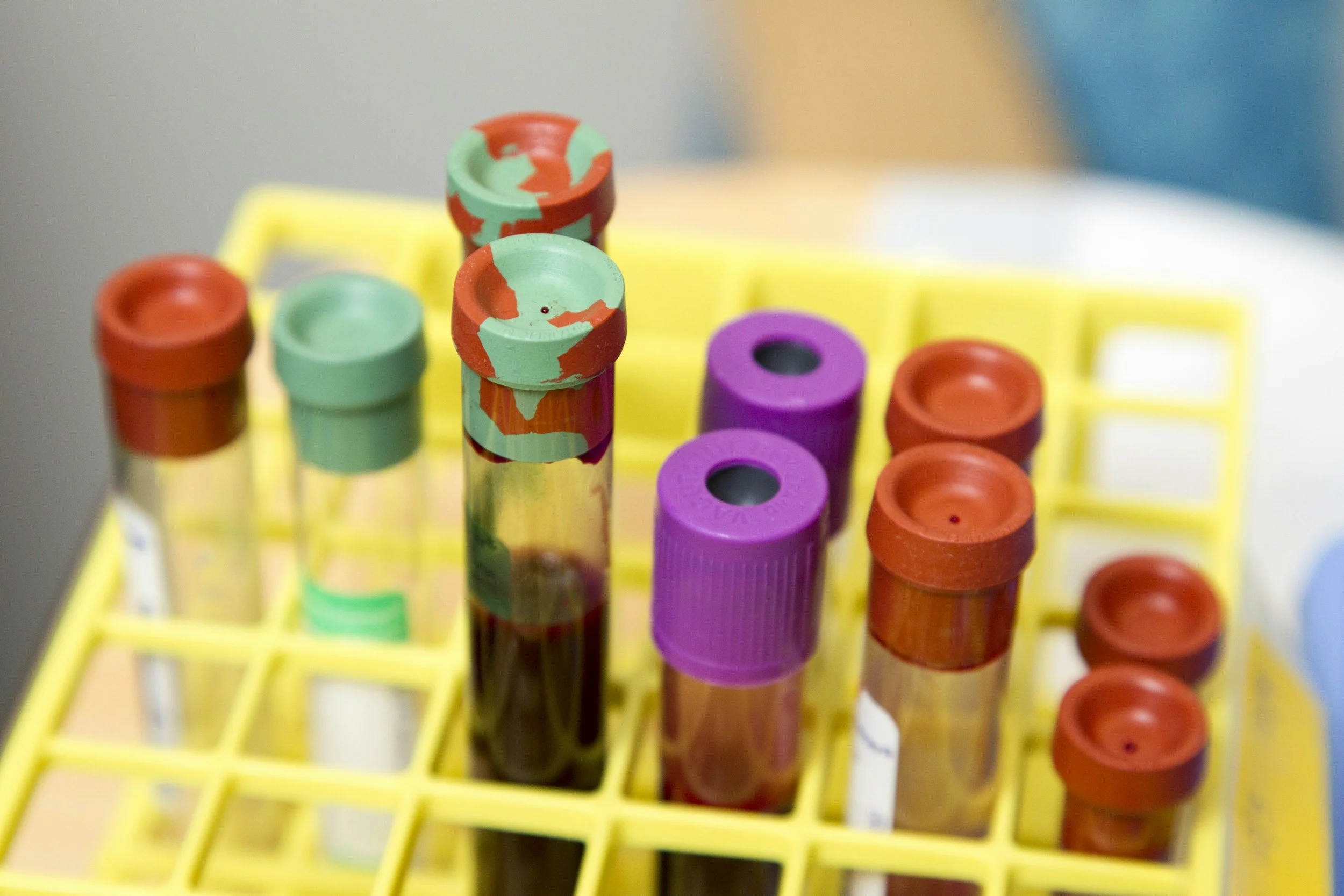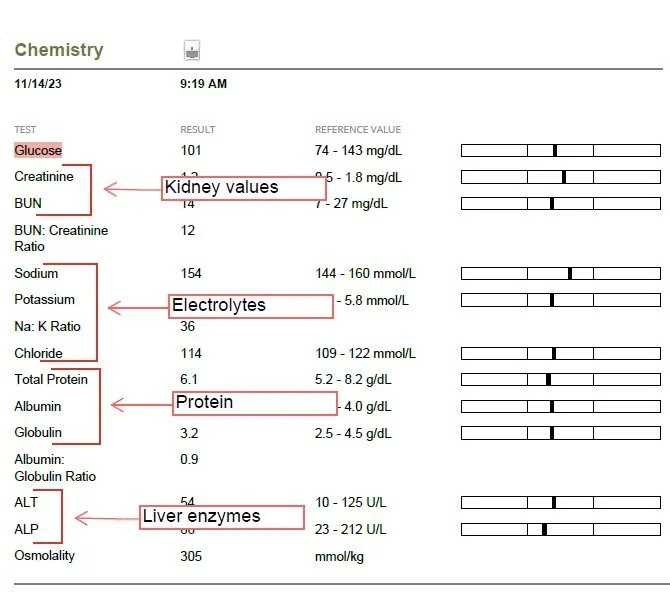8 Key Bloodwork Markers Every Pet Owner Should Understand
Bloodwork is an essential tool in managing your pet’s health. It helps establish a baseline, ensures safety before anesthesia or sedation, monitors medications, and is especially important for senior pets. However, interpreting bloodwork is complex, even for professionals. While you should never try to interpret your pet’s bloodwork results on your own, we hope this article will give you a better understanding of the key values and help you feel more confident when discussing your pet’s lab results with your vet.
CBC (Complete Blood Count): Red and White Blood Cell Counts
A CBC is one of the most commonly performed blood tests for pets. It evaluates both red and white blood cells, which are essential for overall health and immune function. Here’s what to look for:
A CBC from Fair Oak Pet Hospital’s lab- IDEXX
Hematocrit (HCT)
This measures the percentage of red blood cells in the blood. Low hematocrit levels can indicate anemia, which may result from blood loss, destruction of red blood cells, or inadequate production of red blood cells. Severity is key. In puppies and kittens, mild anemia can be normal and transient. Chronic inflammation can also cause mild anemia.
White Blood Cells (WBC)
These are essential for immune function. Mild elevations can occur due to stress or inflammation, while more significant changes may point to infection or other diseases. There are several types of WBCs that function in different types of immune responses.
Platelets
Platelets are crucial for blood clotting. Minor fluctuations in platelet counts are usually not a concern, but significantly low levels can pose serious risks, especially before surgery. Some machines may miscount platelets if they are clumped, so the result should be interpreted with care.
Chemistry Panel: Organ Function
A chemistry panel measures various substances in the blood that reflect the health of your pet’s organs. Here are key values to monitor:
A Chemistry from Fair Oaks Pet Hospital’s lab- IDEXX
Glucose (Glu)
Blood sugar levels are a crucial indicator of diabetes. Elevated glucose levels, particularly those over 300, are highly suggestive of diabetes. Stress can cause mild increases in glucose, but low blood sugar, while rare, can indicate serious health issues.
Kidney Values (BUN, Cr)
These values assess kidney function. Even slight elevations should be considered carefully, as they may signal kidney disease or dehydration. To get a complete understanding, these values should be evaluated alongside a urinalysis.
Protein (Total Protein, Albumin, Globulin)
These protein values help assess your pet’s overall health. Small variations are often normal, but significant changes could indicate conditions like liver disease, kidney disease, intestinal disease, etc.
Liver Enzymes (ALT, ALP)
These enzymes provide important information about liver function. High levels require further investigation. Depending on the degree of elevation and how your pet is doing overall, follow-up bloodwork or additional tests like an abdominal ultrasound is often recommended.
Electrolytes (Na, K, Cl)
Sodium (Na), potassium (K), and chloride (Cl) are electrolytes that help regulate fluid balance and muscle function. Minor variations in these values are often not problematic but should be assessed in context with the rest of the bloodwork and your pet’s clinical condition.
Why Bloodwork Matters
Bloodwork provides valuable data that can help your veterinarian make informed decisions about your pet’s health. By understanding these key markers, you’ll be better equipped to discuss your pet’s results with your veterinarian and ensure that any necessary next steps are taken promptly.
Remember, bloodwork should always be discussed with your vet. This guide is meant to help you feel more informed and prepared during those discussions, but never replace the expertise of your veterinarian. If you have any concerns or questions about your pet’s bloodwork, book an appointment with us or call us at (916) 436-0507. We’re here to help you understand your pet’s health every step of the way.


